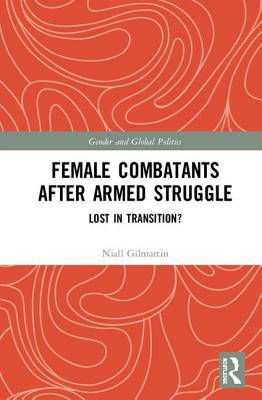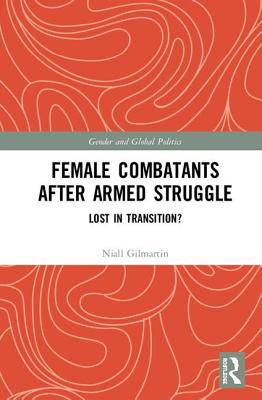
- Afhalen na 1 uur in een winkel met voorraad
- Gratis thuislevering in België vanaf € 30
- Ruim aanbod met 7 miljoen producten
- Afhalen na 1 uur in een winkel met voorraad
- Gratis thuislevering in België vanaf € 30
- Ruim aanbod met 7 miljoen producten
Omschrijving
This book stems from a simple 'feminist curiosity' that can be succinctly summed up into a single question: what happens to combatant women after the war? Based on in-depth interviews with 40 research participants, mostly former combatants within the Irish Republican Army (IRA), this book offers a critical exploration of republican women and conflict transition in the North of Ireland.
Drawing on the feminist theory of a continuum of violence, this book finds that the dichotomous separation of war and peace within conventional approaches represents a gendered fiction. Despite undertaking wartime roles that were empowering, agentic, and subversive, this book finds that the 'post-conflict moment' as experienced by female combatants represents not peace and security, but a continuity of gender discrimination, violence, injustice, and insecurity. The experiences and perspectives contained in this book challenge the discursive deployment of terms such as post-conflict, peace, and security, and moreover, shed light on the many forms of post-war activism undertaken by combatant women in pursuit of peace, equality, and security.
The book represents an important intervention in the field of gender, political violence, and peace, and more specifically, female combatants and conflict transition. It is analytically significant in its exploration of the ways in which gender operates within non-state military movements emerging from conflict, and will be of interest to students and scholars alike.
Specificaties
Betrokkenen
- Auteur(s):
- Uitgeverij:
Inhoud
- Aantal bladzijden:
- 196
- Taal:
- Engels
- Reeks:
Eigenschappen
- Productcode (EAN):
- 9780415786379
- Verschijningsdatum:
- 28/11/2018
- Uitvoering:
- Hardcover
- Formaat:
- Genaaid
- Afmetingen:
- 156 mm x 233 mm
- Gewicht:
- 430 g

Alleen bij Standaard Boekhandel
Beoordelingen
We publiceren alleen reviews die voldoen aan de voorwaarden voor reviews. Bekijk onze voorwaarden voor reviews.











